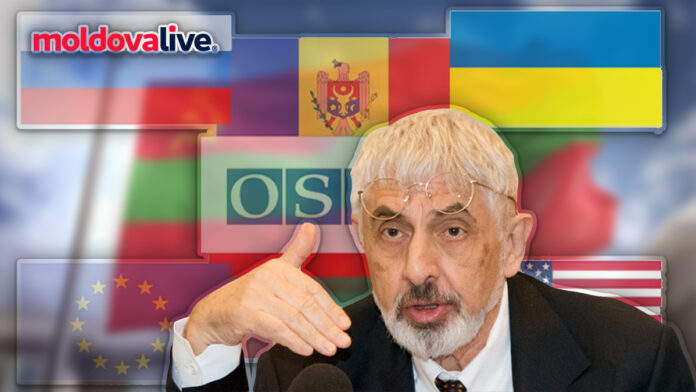In an exclusive interview with Vocea Basarabiei, Western analyst Vladimir Socor from the Jamestown Foundation discussed a range of topics related to Moldova’s foreign relations, the Transnistrian conflict, and the challenges posed by Russia’s influence. The conversation delved into recent developments, diplomatic dynamics, and the implications for Moldova’s future.
The interview started by addressing Moldova’s relations with both the West and the East, emphasizing the challenges faced by President Maia Sandu and the pro-Western government in the aftermath of Russia’s invasion of Ukraine. Socor highlighted the criticisms from Moscow and the recent statement by Russian Foreign Minister Sergei Lavrov, who labeled Moldova as the “next victim of hybrid war unleashed by the West against Russia.”
Socor provided insights into the recent annual ministerial meeting of the Organization for Security and Cooperation in Europe (OSCE), where Russia once again exercised its veto power, blocking the organization’s budget for the third consecutive year. He discussed the compromises made by Western countries, including sacrificing Estonia’s candidacy for the 2024 OSCE presidency, in an attempt to appease Russia and overcome the financial blockade.
FOR THE MOST IMPORTANT NEWS, FOLLOW US ON TWITTER!
The discussion then shifted to Moldova’s position within the OSCE and the challenges posed by the ongoing Transnistrian conflict. Socor criticized the traditional negotiation format, known as “5+2,” and the concept of a “special status” for Transnistria, arguing that these approaches are incompatible with Moldova’s aspirations for EU integration. He pointed out the need to abandon these frameworks and discussed the recent shift in Chisinau’s rhetoric, no longer accepting the terms of “5+2” and “special status.”
Socor praised Moldova’s firm stance on the unconditional withdrawal of Russian troops from the Transnistrian region and commended Foreign Minister Nicu Popescu’s recent speech at the OSCE, where he called for the complete and unconditional withdrawal of Russian forces.
In addressing Russia’s perspective on the Transnistrian issue, Socor recalled the Kozak Memorandum, a plan from two decades ago that proposed the federalization of Moldova under Russian auspices. He emphasized that Russia’s objectives remain consistent, now labeled as a “special status,” and pointed out the contradiction between Moldova’s European aspirations and negotiating arrangements with Russia.
Socor concluded the interview by discussing the evolving dynamics between Chisinau and Tiraspol, suggesting a more efficient “1+1” format for negotiations between the Moldovan government and the Transnistrian leadership. He highlighted the diminishing role of Russia in supporting Transnistria and the potential challenges posed by Ukraine’s likely cessation of Russian gas transit through the region.
As the interview concluded, Socor expressed skepticism about immediate progress on the Transnistrian issue, arguing that Moldova is not currently prepared to reintegrate with Transnistria given the internal challenges and the country’s ongoing state-building process.


